- Home
- Brian Garfield
What of Terry Conniston? Page 4
What of Terry Conniston? Read online
Page 4
Conniston had the customary tycoon’s desire for younger women; he also liked talent in his women. His first wife, Terry’s mother, had been a violinist; when her desire to return to her career had crossed Conniston’s need for an ornament and social hostess the marriage had cracked up. The second wife had been a painter; her work was as vivid and flashy as her person. Conniston had paid an art professor to write a book about her painting but even that hadn’t helped get the canvases into respectable galleries; her one and only critical notice in the New York Times had said, “As for Mrs. Conniston’s work, aside from a certain flamboyant gusto, it can only be described as a mediocre example of the neo-excretionist school.” That marriage had soured for much the same reasons that caused today’s rigid expression on Louise Conniston’s sensuous face.
Louise had a tall solid body, trimmed by daily workouts against a ballet exercise bar. She had thick tawny hair and animated, amorous features. Her large eyes were passionate; her expressions had a wide and subtle range of colors which at first tended to obscure the rather ordinary mind beyond. She had a honey tan and superb long legs; she wore a vinyl miniskirt and a sleeveless blouse that clung electrically to her velvet curves. Oakley watched her pirouette slowly to face him.
“Oh—Carl. I didn’t know you were there.” She didn’t look at all startled.
He said, “You’re looking lovely, as always.”
Her smile had just the right degree of rehearsed demureness. It faded quickly and she said, “I suppose you’ll have him locked up with you in there all afternoon and half the night.”
“We’ve got quite a bit to go over,” he conceded. “Have to pack a lot into these short trips of mine down here. Why? You seem upset.”
“It’s only—” she began, and stopped. She tipped her head to one side, a little-girl pose, and absently fingered a flower petal above the vase. “He just came back from Washington last Saturday. I hardly have any time at all alone with him any more.” Clearly it wasn’t what she had started out to say.
“I’ll try to cut it short,” Oakley said, more out of politeness than honesty. “It’s up to him, you know.”
“I know,” she said; the curl of her lip seemed, for a change, involuntary. Her eyes were still averted.
“Well,” Oakley said, and turned toward the study door.
“Wait.”
He stopped and looked at her. She said, “Carl, you knew his other wives, Dorothy and Marianne.”
Whatever was coming, he thought he didn’t want to hear it. He said as much, or began to: “I don’t think it’s any of my—”
“No. I have to ask you something. Those marriages, Carl why did they fall apart?”
“In twenty-five words or less? You know I can’t give you a simple answer to a question like that. Maybe I don’t even know the real answers. Why don’t you ask Earle?”
“Was it,” she pressed, “—neglect?”
“Neglect? By whom? What kind of crazy ideas have you got?”
Her face changed. She turned half away, hiding her eyes from him, and muttered so that he barely caught the words, “It’s been getting worse for months. He just shuts me out. He never even says good night to me any more. What can I do? Tell me what to do, Carl.”
“Why ask me?” he replied, more harshly than he had intended, but her act angered him—he was sure now it was an act after all and he disliked the sordid presumptions it implied, that he was nothing more than a gullible audience for her histrionics. He had no idea what motivated the theatrics but he did know her well enough to be sure she would never unburden herself to him so casually if there weren’t something hidden behind it.
She seemed unaffected by his peremptory remark; she only said in a small voice, “What’s going to happen, Carl?”
He shook his head obstinately. “I’m a lawyer, not an oracle. Look, I apologize for snapping at you. But I learned a long time ago to stay out of other people’s domestic tangles. It’s not my field of law. Talk to a marriage counselor. Better yet, why not talk to Earle?”
“I have. He just doesn’t listen. It’s as if I’m not even there.”
“I’m sorry,” he said lamely, angry at Conniston for being so clumsy (if she was telling the truth), equally angry at Louise for trying to involve him. He reached for the knob of the study door.
She said absently, “He’s not in there. He’s in the office.”
He shot a quick glance at her, which she didn’t notice; she was bent over the flowers as if holding back tears. He pushed back the momentary impulse to leave the room rudely and quickly; instead he crossed the room with brisk strides and put an arm across her shoulders. “Come on, now. Come on.”
“Never mind. I’m all right. You’re right—it’s not your problem and I had no right dragging you into it.”
He patted her arm, feeling foolish as he did so. Her flesh was soft and warm; his carnal instincts stirred, he stepped away from her. She lifted her face toward him and stared, unblinking; her breasts rose and fell with her breathing. If it was a pose it was effective. But if she meant him to draw implications from it they were implications he couldn’t afford to explore. A bit of a smile flashed briefly across his cheeks and he shook his head at her with more irony than displeasure. Unable to think of anything useful to say, he walked slowly away. Her voice, pitched low, followed him to the door:
“If you get a chance see if you can find out what I’ve done that’s offended him.”
“Sure.” He went back through the cool corridor to the office and knocked. There was a clack and a buzz—Conniston had an electric button under his desk which automatically unlocked the door; the cork-lined office was his working sanctum. When Oakley stepped inside he was on his guard: in Earle Conniston’s house the study was for friends and the office was for pure business. So it wasn’t to be a casual afternoon.
A row of brown filing cabinets stood at attention along one cork-paneled wall. There was a Utrillo and a small blue Picasso; otherwise the room was bare of decoration. A scatter of leather chairs; a sound-absorbent carpet, plain beige; the big man’s desk, dominant, kidney-shaped walnut.
Conniston was scowling, talking into one of the phones. His attention whipped down the room to Oakley; he nodded. Oakley pushed the door shut with his heel. Conniston’s deep baritone growled at the phone:
“Yes. Might be important fact…. Then juice up the accounting—feel they aren’t depreciating things fast enough. What about Raiford?… Why not? They’ve all got hands out for the sugar tit, haven’t they? Don’t tell me Bob Raiford’s developed sudden attack of acute integrity. Doesn’t fit. Christ, in the old days you could buy a senator with pocket money—now got to give the bastards TV station and two newspapers…. Well, then, get to work on him. What do you mean, when? Get started two hours ago.”
Clearly it was a long conversation, only half completed. A kind of dull peace settled on Oakley and he let Conniston’s phone talk go by. He put a cigar in his mouth but didn’t light it and after a few minutes, with Conniston’s voice droning on, he left the chair and went past Conniston to stand at the window and look out across the flagstoned back patio. Fifty feet from the house was a lawn fountain, a baroque relic Conniston had picked up in Europe; it resembled a bird bath for buzzards, to Oakley’s austere way of thinking. Just beyond was the swimming pool built of cement and tile and money. Someone was splashing in the pool; he couldn’t make out the swimmer’s identity against the sun-glare and cascading shards of water. But within a minute or two the swimmer climbed out of the pool and reached for a towel—Terry Conniston.
She moved lightly and quickly—young, soft, slim, silky. Her bare feet touched the flagstones like musical notes; she moved fast because the flagstones were frying-pan hot. Oakley watched her settle down on a lawn chaise under a beach umbrella. The dark green bikini set off her pale red hair. She was a tall girl with good bones.
Oakley had watched her grow up. Through her teens she had left a wake of dazed prep-school boys stunned by g
rieving, frustrated desire. There had been a serious boy friend a year or so ago but that had broken up, suddenly and unaccountably. It had happened not long before Earle Jr. had died.
Oakley recalled that time with unhappy vividness. Louise had called him at midnight tearfully to plead with him to fly down immediately: they had just received word of the boy’s death and Conniston was falling apart. Oakley had held Conniston’s hand for almost a week. He had lied steadfastly in a grim attempt to convince Conniston the boy’s death wasn’t his fault. In fact if anybody was to blame it was Conniston. Earle Jr. had strangled himself at a pot party with a girl’s stocking.
Not amazing, in the cold glare of statistics: suicide was the second most common cause of death among college students in the United States. The boy’s father, now barking heartily on the telephone, had never finished college—the football injury in his sophomore year had killed his scholarship. Thirty-seven years later Conniston had done what so many of them did: expected too much of his son, put too much pressure on him. Earle Jr. had never had time to relax and find himself. He’d been railroaded through prep academies and an ivy university and he’d killed himself, one year ago last month.
He was aware, suddenly, that Conniston was no longer talking; Conniston was standing at his elbow.
“Sorry,” Oakley said. “Reveries, I guess. How are you, Earle?”
“Fine, fine. I keep fit.” Conniston even took moralistic credit for his health; it was like him. In fact, near sixty, he looked closer to forty, as robust and hearty as he had been a quarter-century ago. His eyes, the color of rusty iron, slid past Oakley—a casual trick to mask his quick but careful scrutiny. The eyes traveled on by to give the sky half a second’s uninterested inspection: “Beautiful day.”
“Uh-huh. I wasn’t looking at the weather.” Oakley smiled around his unlit cigar.
“Terry? Stunning.”
“Dazzling enough to make me wish I was twenty years younger.”
“Might not matter,” Conniston said. “She’s ripe for somebody’s bait. Desperately looking for love and doesn’t even know what it is. You want to try, I won’t stand in your way. Snappish little bitch, though. That outfit she’s wearing, not much more than a little titty rag and a diaper. Adams said when she bought it they wrapped it in the price tag.”
“Adams who?”
“Frankie Adams. House guest—one of Louise’s charities. You didn’t bump into him? You will.” Conniston’s face, expressionless, revealed his opinion of the unseen Frankie Adams. He added abstractedly, “Comedian. Does imitations. Impressions, he calls them—does a pretty good Nixon.”
Conniston went back to his chair, indicating the pleasantries were over; Oakley stirred, went around the desk and sat. Without preamble he said, “You’ve got a feeder herd of five thousand head close to proper weight and grade. They’ve got to go to market within the next three months. Beef prices are pretty volatile right now—God knows if you’ll even cover costs.”
“So?”
“So I think it’s time to start rounding them up.”
“It’s only August, Carl.”
“Right. You can get a jump on the market.”
“And what if market goes up?”
“What if it goes down? You know I’m not a nervous Nellie but I don’t like the smell of it. The stock market’s been drifting down and I expect commodities to start leveling off pretty quick.”
“Better put a few more pounds on them, take the gamble.”
“That could be a quarter-million-dollar gamble, Earle.”
“Peanuts. I’ll take risk. Anything else?”
“When you liquidated your big board fund you asked me to scout around for a capital investment. Have you still got that cash free?”
“Most of it. Come up with something?”
“Half a mile of beach front on St. Croix in the Virgin Islands. The developers are getting thirty thousand per half acre for choice spots on St. Thomas and the boom will hit St. Croix next—you might recall Will Rogers’ advice, buy land because they’re not making any more of it.”
“Will Rogers wasn’t a businessman. You scouted St. Croix?”
“Of course.”
“All right. Buy it.”
That was settled; not even a handshake was needed. Oakley smiled briefly. “That’s all at my end.” He clamped his jaws on a cigar and sat back, ready to learn why Conniston had summoned him today.
Conniston’s eyelids drooped, covering his thoughts. The reddish eyelashes were so pale they seemed hairless. “You talk to Louise?”
“A little. Storm signals are up, it appears.”
“She tell you her pet project of month?”
“No. She only complained about feeling neglected and abandoned.”
“Trying to teach her a lesson,” Conniston said. The delivery—as if he were dictating a telegram—was the same as usual; the tone was gruffer than ordinary. “Orozco got her ear,” he said.
“Oh-oh. And she bought it?”
“God save us from eastern liberal women without brains. She bought it.”
“What do you want me to do about it?”
“Talk to Orozco. Your friend, not mine—won’t listen to me.”
Oakley said uncertainly, “Orozco’s a damned good snoop, the best in the state. I’d hate to lose him.”
“Private detectives are dime-a-dozen. Rather lose him than have him on my back all the time. Now he’s put the bug in my wife’s ear—I hear it all day long. Carl, you’ve got to inform fat pest I won’t have any more of it.”
Oakley couldn’t help smiling—that a fat Mexican private detective and a 120-pound woman could cause Earle Conniston such discomfiture was absurd and comical.
Oakley said, “On the face of it Orozco’s people have a real grievance.”
“Then let them take it up with courts and OEO and civil rights people. Carl, I’ve given up on it. I can’t seem to get it into heads of these silly chicanos that I own this place. Damn chicanos just can’t adjust to the times. Fantastic land-grant pipe-dream can’t change fact that I’m in possession with clean, clear title to land.”
“They don’t see it that way. The Mexicans claim this land is theirs by bequest from Ferdinand and Isabella.”
Conniston snorted.
Oakley said, “The viceroys of New Spain deeded the Tierra Roja land grant to the Spanish settlers. After the Mexican War the Treaty of Guadalupe Hidalgo in 1848 guaranteed the American government would protect the property rights of Mexican landowners with legitimate deeds. Now the chicanos claim the gringos came in and destroyed the old Spanish documents in the Mexican archives and got the chicanos’ land claims struck down by fraud in rigged Anglo courts.”
“Not bad. You memorize that for delivery on TV or what? You working for the chicanos now, Carl?”
“No. But I’ve listened to them and looked up some law. The chicanos have got a pretty persuasive case.”
“Aagh,” Conniston said in disgust. “Those Spanish charters—scraps of paper signed in Madrid three hundred years ago. Worthless. Those and a few guns took land away from Indians. So what? Tell chicanos to go argue with Papago Indians, not with me. I’ve got possession. Nine tenths of law, right?”
“Nothing’s that simple any more. Look at the reparations the Alaska tribes got from the government.”
“Then tell the chicanos go argue with government. Look, Carl, I don’t want big federal case here. All I want is to get Diego Orozco off my wife’s back so my wife will get off mine. Read me?”
Without waiting an answer Conniston got up and turned his back to scowl out through the window. Oakley brooded at his wide back. It looked taut, as if awaiting an expected stabbing. Conniston was too agitated; now, thinking back over the past year, Oakley recalled things—little things—which he had put out of his mind at the time because they had seemed inconsequential. Added together they began to form a disquieting picture. I should have seen it before. Conniston had started his fitful, furtive retreat
when his son had killed himself; ever since, the overreactions had become more and more frequent, almost paranoid. Conniston was on the downhill slope—things had begun to go by too fast for him. Once, in June, he had disclosed dark suspicions that someone was trying to wrest his empire from him by secret maneuver—vague remarks about corporate raiders, fears of proxy fights. He had recovered the next day—“Forget that, forget that; I get moods sometimes, never mind”—but now Oakley recalled the incident and his mind jumped the straight track of all the years of conditioned thinking.
Watching the big man’s back, the shoulders lifted defensively, Oakley said in a soft voice from which he withdrew all honest feeling, “I’ll talk to Orozco, Earle. I’ll take care of it.”
He didn’t notice Conniston’s reply. A new and terrifying ambition had crept into Oakley’s mind like an infiltrating cloud.
C H A P T E R Five
The girl whom newspapers relentlessly identified as “Industrial Heiress Terry Conniston,” disregarding the fact her father was still very much alive, emerged like a glossy mermaid from the blue pool, her chestnut hair wet-dark and shining in the sun. She slipped graceful feet into rubber thong-sandals and walked with a trim display of shapely thighs and swelling calves toward the veranda door of her bedroom, a tall girl with a good long-waisted carriage and the trim long legs of her western generation. The delicate lines and high strong cheekbones of her face seemed a denial of her father’s blunt-boned genes.
In the shade by her door she stopped to look back across the painfully glistening pool. Patches of benign clouds rode quickly across the sky from the west, dragging their shadows along the ground, and for a moment she enjoyed watching the afternoon colors change on the grass hills. Occasional dots on the slopes were her father’s cattle grazing; once she saw the dust of a running jeep on the skyline. Her face turned youthfully solemn and she brooded toward the pool, squinting; she was blue-eyed but she detested sunglasses and never wore them. She was remembering the starry evening two years ago when she had returned home from her first semester at Bennington to find the enormous pool, newly built—“A little surprise I had put in for you,” her father had said, putting his thick arm across her shoulders and walking her along the flagstones. Half a dozen muscular young men with golden tans had been splashing in the pool and Terry had remarked, “I see you’ve stocked it for me, Daddy,” and they had laughed. Those had been happier times.

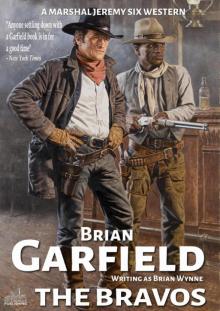 Marshal Jeremy Six #3
Marshal Jeremy Six #3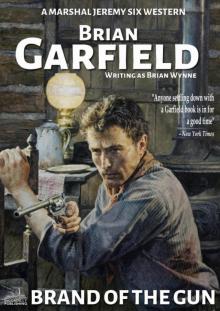 Marshal Jeremy Six #6
Marshal Jeremy Six #6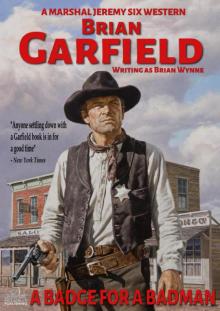 Marshal Jeremy Six #5
Marshal Jeremy Six #5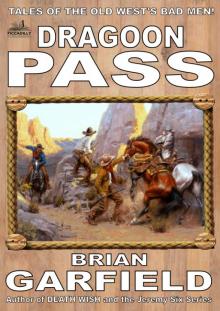 The Outlaws 2
The Outlaws 2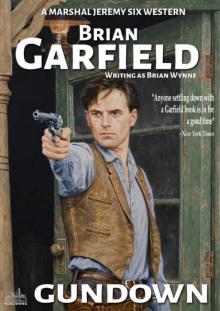 Marshal Jeremy Six #7
Marshal Jeremy Six #7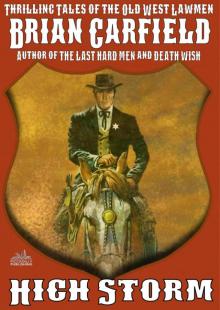 The Lawbringers 4
The Lawbringers 4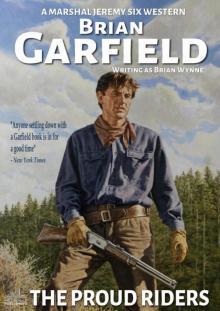 Marshal Jeremy Six #4 the Proud Riders
Marshal Jeremy Six #4 the Proud Riders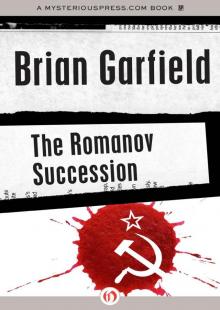 The Romanov succession
The Romanov succession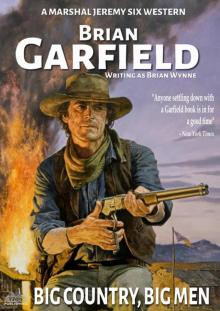 Marshal Jeremy Six #8
Marshal Jeremy Six #8 Sliphammer
Sliphammer Line of Succession
Line of Succession Deep Cover
Deep Cover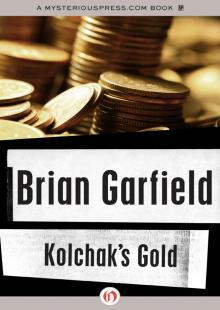 Kolchak's Gold
Kolchak's Gold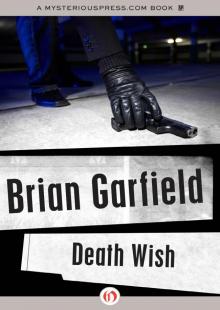 Death Wish
Death Wish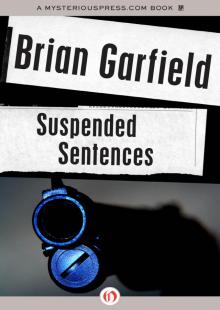 Suspended Sentences
Suspended Sentences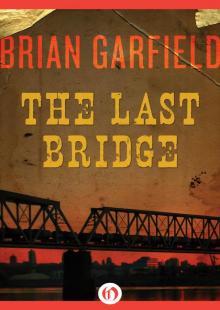 The Last Bridge
The Last Bridge Relentless
Relentless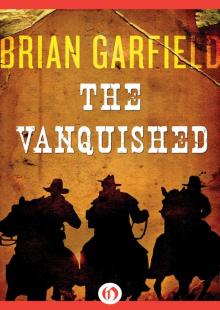 The Vanquished
The Vanquished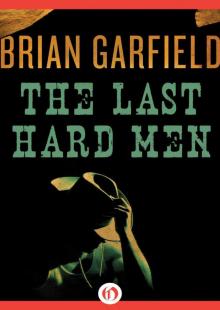 The Last Hard Men
The Last Hard Men Hit and The Marksman
Hit and The Marksman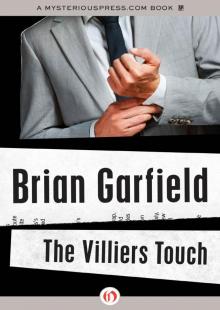 Villiers Touch
Villiers Touch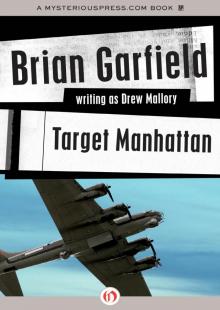 Target Manhattan
Target Manhattan Marchand Woman
Marchand Woman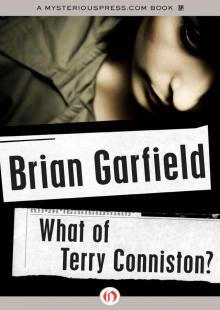 What of Terry Conniston?
What of Terry Conniston?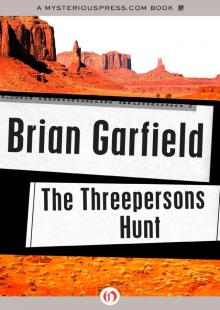 Threepersons Hunt
Threepersons Hunt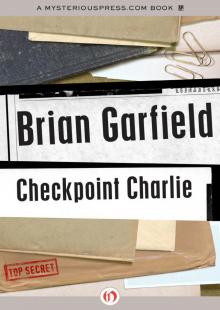 Checkpoint Charlie
Checkpoint Charlie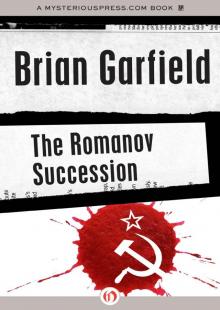 Romanov Succession
Romanov Succession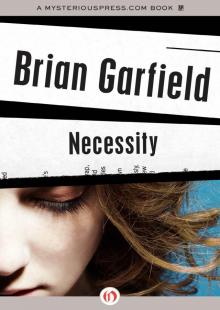 Necessity
Necessity Death Sentence
Death Sentence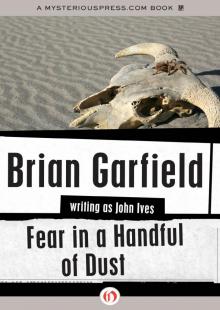 Fear in a Handful of Dust
Fear in a Handful of Dust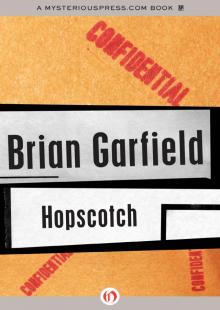 Hopscotch
Hopscotch